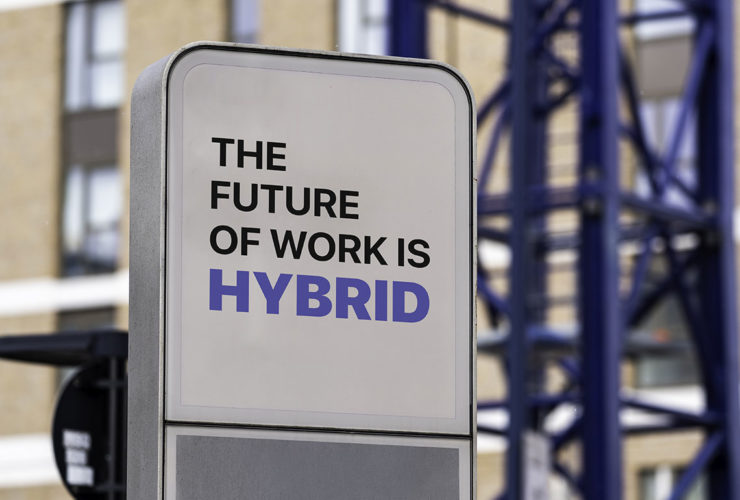You know what many hiring managers hate to do? Hire new employees.
There are many reasons they find hiring distasteful, as Humetrics’ Mel Kleiman points out. A couple notable ones: It gets in the way of their “real job,” and past poor hiring results can make them pessimistic about making quality hires.
But as a recruiter, as Facebook recruiter Allison Mackay observes, you must work and partner with hiring managers. For this partnership to work, you need hiring managers to buy into your recruiting process and be committed to their role in it. Achieving this requires both effective communications, and as Mackay notes, showing to them “your worth as a partner.”
Let’s take a look at some specific steps for getting hiring managers to buy into your recruiting process—and you as a partner. Perform them well, and perhaps hiring managers may even change their opinions about hiring.
- Achieve Clarity on Core Skills and Experience During Intake Sessions
The perfect candidate—one who has all of the skills and experience the hiring manager is looking for—often isn’t out there. So as a recruiter, for a given job, it’s vital to know which skills and competency areas are critical for candidates to meet requirements in, and which are “nice to haves” but not essential. Getting clarity about this should be a primary goal during your intake session with hiring managers. It helps with the writing of an effective job description, guides your candidate screening, and encourages’ hiring manager confidence in the recruiting process.
- Get Agreement on Screening Tools and Process
Hiring managers also should be involved in determining the tools and process that will be used to screen candidates for a given job. Should a skills test be used? A coding challenge? Do candidates undergo technical interviews? Is it a combination depending on the quality and quantity of candidates submitted? Having more screening steps adds to the length of the hiring process. Having agreement on the screening steps helps ensure that hiring managers are satisfied with the candidate screening process—that it is both sufficiently rigorous and does not cause unnecessary delays.
An important component is identifying minimum thresholds or scores that candidates must meet on screening assessment tools. For example, with technical interviews conducted by eTeki interviewers, it’s common for hiring managers to require a 3.8 (out of 5) average score or higher on required skills.
- Provide Hiring Managers With Updates About Screening Process
Keep hiring managers updated about the status of the screening process. It keeps them engaged and shows them that you are doing your job and that the process is moving forward.
Here’s an example of a way to update hiring managers: Send them occasional notes about how many candidates are advancing through the screening steps, and also about how many are eliminated because they didn’t perform up to the minimum threshold. This way you can discuss if the number of candidates advancing through screening is too low or two high and can lead to discussion and agreement on adjustments to the process—such as decreasing or raising minimum thresholds on screening tools.
- If Working with Multiple Hiring Managers, Use Focus Groups.
If you work with multiple hiring managers (for example, if you’re responsible for technical recruiting as a whole), it’s a great idea to occasionally get hiring managers together to discuss and evaluate the screening process. This enables you to get feedback from hiring managers about what’s working and what’s not, about the most important competencies for given roles, and about the best screening tools. This doesn’t just help you—it helps the hiring managers, too. If one hiring manager speaks highly of a screening tool, others might be more willing to try it and get positive results.
- Develop Your Understanding of the Areas You’re Hiring For
If you show that you have subject-matter knowledge, hiring managers are going to have more confidence in your ability to properly screen candidates. In other words, they will be more likely to see you as an effective partner and will be more eager to work with you.
- Provide Data
As Mackay notes, you want to offer data that hiring managers need to know. Some examples she offers:
- How many candidates in the pipeline
- How many people in interviews
- Time to hire (if hired for the role previously)
When you provide hiring managers with information that helps them, they’re going to listen to you and will be more likely to buy into the recruiting process.
Building and Sustaining Trust
Ultimately, to get hiring managers to buy into your recruiting process, you need them to trust the effectiveness of the process and to trust in you. The importance of communication in building and maintaining that trust can’t be overstated. So often when trust breaks down it happens over misunderstandings about processes, tools, and procedures. The suggestions in this post will help eliminate those misunderstandings, thereby improving your relationships with hiring managers and encouraging hiring managers to fully buy into your recruiting process.







